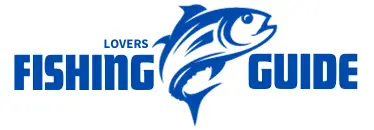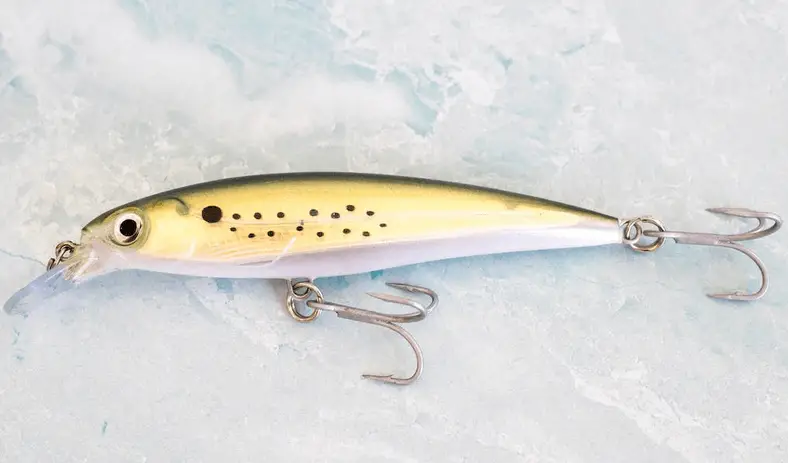Yes, you can fish with just a hook, but success greatly depends on the targeted fish species and environment. An appropriate bait increases the likelihood of catching fish.
Fishing is a timeless activity that thrives on simplicity and skill. While the modern angler’s tackle box might overflow with gear, the heart of fishing remains the hook. This basic piece of equipment, when used adeptly, can yield success even in its lone form.
Seasoned fishermen know that under certain conditions and with the right technique, the simplicity of a solitary hook can outsmart even the wiliest of fish. Whether you’re streamlining your approach, embracing minimalist tactics, or facing a situation that demands ingenuity, fishing with just a hook harks back to the angling roots – a true test of patience and prowess.
Introduction To Minimalist Fishing
Minimalist fishing is an emerging trend among outdoor enthusiasts who seek the simplicity and challenge of catching fish with minimal equipment. Traditionally, fishing involves various gear, including rods, reels, lures, and bait. However, a growing number of anglers are embracing the concept of fishing with only a hook, a line, and a keen sense of the environment.
Emphasizing skill and patience, minimalist fishing aligns with the broader minimalist outdoor movement, which advocates for a deeper connection with nature through a ‘less is more’ approach. By reducing reliance on excessive gear, anglers find that they can focus more on technique and the natural behavior of fish. This type of fishing not only presents a unique challenge but also fosters greater appreciation for the outdoor experience.
Can You Fish With Just A Hook ?
Fishing with just a hook is a minimalist approach embraced by some anglers. This method strips the practice down to one of its most essential components the hook. The role of the hook in fishing is paramount—it is the tool that pierces the mouth of the fish, allowing the angler to capture it. Without additional equipment such as bait or lures, the feasibility of catching fish solely with a hook depends heavily on the fish’s natural curiosity or hunger leading it to investigate the bare hook.
Employing a hook without any form of enticement can result in a productive outing, especially in waters teeming with fish. The simplicity of hook-only fishing might appeal to survivalists or those practicing traditional techniques. Still, limitations and challenges abound. The absence of bait reduces the chances of attracting fish, necessitating more patience and skill from the angler. Subsequently, hook-only methods may not always be effective, especially in areas where fish are less abundant or more discerning.
Tips For Successful Hook-only Fishing
Successful hook-only fishing depends on the proper selection of hook size and shape. A mismatched hook can reduce the chances of catching fish significantly. For small fish, opt for smaller hooks to ensure they can easily bite. Conversely, larger hooks are essential for targeting bigger species. The shape of the hook also plays a critical role—circle hooks are great for conservation, as they tend to catch in the corner of the fish’s mouth, reducing the likelihood of gut hooking.
Learning the right baiting techniques without the use of lures or additional bait is imperative. Live baiting, such as using insects or smaller fish, can be effective. For a sustainable approach, practicing catch and release methods with artificial bait like colorful strands can mimic prey and entice fish. Moreover, the skill of accurately casting and gently retrieving the hook influences success rates. A smooth, swift casting motion paired with a strategic retrieval pattern mimics the natural movement of prey, increasing the chance of a bite.
| Hook Maintenance Best Practice | Description |
| Rust Prevention | After use, drying hooks thoroughly and applying a light coat of oil preserves their sharpness and usability. |
| Regular Inspection | Checking for any signs of wear or damage ensures hooks remain in optimal condition for every fishing trip. |
| Sharpness Checks | Using a file to maintain the point can make the difference between a successful catch and a near-miss. |
Crafting Natural Bait From The Environment
Fishing with just a hook can be a rugged adventure, yet quite effective when leveraging the abundance of nature’s pantry. A variety of natural baits can be foraged from the surrounding environment, such as worms, insects, and smaller fish, to entice a larger catch. It’s vital to learn how to present the bait on a hook in a manner that mimics the movement of live prey to increase the chances of a successful catch.
Finding the right spot for natural bait fishing requires understanding the habits of the target fish. Seek areas with plenty of cover and food sources; these shallower waters are often teeming with fish dwelling near the banks. Fast-moving waters can also be ideal as they bring natural baits into the area and attract predatory fish.
| Bait | Environment | Presentation Tip |
| Worms | Moist soil, under rocks | Jiggle the hook gently |
| Insects | Near plants, lights at night | Mimic natural movement |
| Small fish | Streams, ponds edges | Keep it moving |
Tricks To Enhance Hook-only Fishing Success
Discerning the nuances of water conditions is pivotal for hook-only fishing. Anglers should focus on water clarity, currents, and structural features to reveal hidden hotspots. Rapid water often signals submerged objects where fish may lurk, offering an excellent opportunity for a strategic cast.
Fishing during specific times can drastically increase catch rates. Dawn and dusk are typically when fish are most active and hunting for food. Aligning fishing expeditions with these periods is a savvy move for any angler employing a hook-only method.
Approaching fishing spots with stealth and patience notably enhances success chances. A silent approach and minimal movement help in avoiding spooking the fish, making a prudent and cautious tactic essential.
Survival scenarios can often necessitate reliance on basic tools, with hook-only fishing emerging as a crucial skill. Mastery of this technique ensures sustenance when conventional gear is out of reach.
Ethics And Conservation: Responsible Hook-only Fishing
Fishing with just a hook is not only an exercise in skill and patience, but also a statement about ethical angling. Anglers dedicated to minimal harm have embraced the practice of catch and release, ensuring that fish populations remain robust for future generations. Adherence to local fishing regulations is paramount, as these are designed to maintain balance within aquatic ecosystems.
Minimalist anglers contribute valuably by understanding restrictions specific to their fishing grounds. These might include size limits, species restrictions, and seasonal limitations that foster sustainable fisheries. By selecting just the hook, they streamline their impact, negating the need for additional tackle that can harm fish or their habitat.
Conservation extends beyond adhering to rules; it’s about active participation in habitat preservation efforts. Anglers choosing a hook-only approach are often those who also engage in cleanup drives, advocacy for marine life protection, and sharing conservation practices with fellow enthusiasts, thus enriching the angling community’s mindfulness toward nature.
The Joys And Challenges Of Hook-only Fishing
Fishing with just a hook represents a return to the basics of angling and brings a unique set of challenges and opportunities for personal growth. Embracing this minimalist approach can sharpen an angler’s instincts and enhance their appreciation for the environment.
Remember, utilizing the right technique is key; matching the hook size to the target fish, perfecting the art of bait presentation, and being patient are crucial elements for success. This pared-down method fosters a deeper connection with nature, promoting a sense of accomplishment that goes beyond the catch itself.
Anglers seeking to refine their skills should consider giving this a try and are encouraged to share their hook-only fishing experiences with others. Every engagement provides valuable insights and stories that enrich the angling community. It’s an investment in your abilities that pays dividends in both pleasure and expertise.
Frequently Asked Questions Of Can You Fish With Just A Hook?
Is Fishing Possible With Only A Hook?
Absolutely, you can fish with just a hook. However, your success depends on the fish’s behavior, environment, and bait choice. Using just a hook requires skill and patience, as it’s less enticing than a full lure setup.
What Are Effective Baits For Hook-only Fishing?
Effective baits for hook-only fishing include worms, cut bait, or small fish. Natural baits are more appealing and can be successful even without additional tackle. It’s important to match the bait with the targeted fish species.
Final Word
Fishing with just a hook is indeed possible. Mastery of technique and a keen understanding of the target fish’s behavior are critical. Keep practice and patience at the forefront, and you’ll soon enjoy the simplicity and challenge of hook-only fishing.
Ready your hooks and embrace the adventure.

